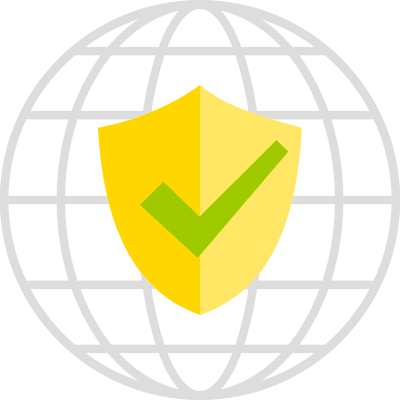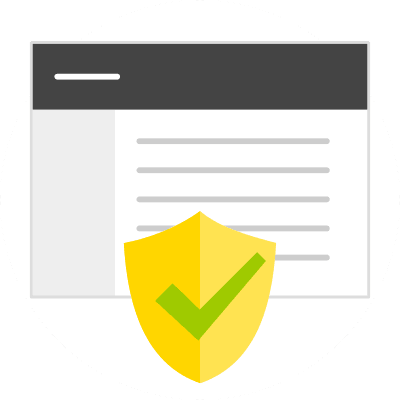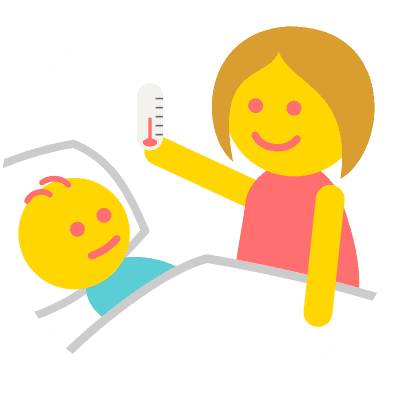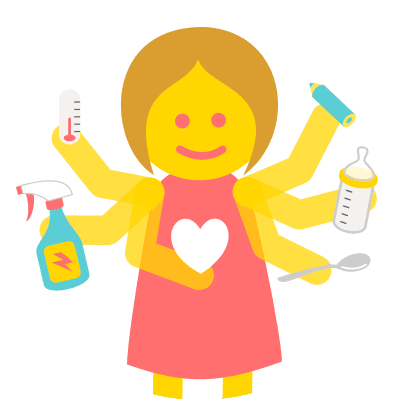How to Stay Safe Online as a Babysitter (11 Rules to Follow)


Written & Illustrated by
Matthew James Taylor
Kidsit Founder, General Manager

Reviewed & Edited by
Renee Irving Lee, B.Ed.
Special Education Teacher, Swim Coach, Childrens Author
Key Takeaways
- Adjust your privacy settings: Ensure your social media profiles are private to prevent strangers from accessing personal information.
- Limit personal information: Avoid sharing sensitive details like your home address or personal contact information on babysitting platforms.
- Be cautious with online posts: Think twice before sharing content online, as it can be permanent and may be seen by potential employers.
- Use trusted babysitting websites: Opt for reputable platforms like Kidsit that prioritize safety and have measures in place to protect users.
- Ensure secure transactions: When making payments or sharing financial information, verify that the website is secure and encrypted.
- Secure your devices: Use strong passwords and enable security features on your devices to protect against unauthorized access.
- Be wary of phishing attempts: Avoid clicking on suspicious links or downloading attachments from unknown sources to protect against scams.
- Meet in safe locations: When meeting parents or clients for the first time, choose public places to ensure safety.
- Communicate openly: Maintain clear and honest communication with parents and clients to establish trust and set expectations.
- Trust your instincts: If something feels off or uncomfortable, don't hesitate to remove yourself from the situation.
- Stay informed: Regularly update yourself on online safety practices and be proactive in protecting your personal information.
Growing up in the digital age means that the basics of online safety have been drilled into you from a young age. We all know not to use easy-to-guess passwords, or not to re-use the same passwords on multiple sites. But, did you know there are alot more less obvious safety precautions to consider?
How do you stay safe online as a babysitter? Most online safety as a babysitter is preventative. Don't put information online that you don't want strangers to see. Use your privacy settings to restrict access to only those who need it. And avoid visiting websites or responding to emails or texts that don't seem legitimate.
In this article, I'll let you know how to stay safe online as a babysitter. If you follow these 11 rules, you'll minimize the chance of having negative online interactions.
1. Lock Down Your Privacy Settings
Most social media websites like Facebook have options available to make your profile more private. Sometimes these settings can be hard to find since marketers that advertise on these platforms also want access to your valuable data. It's important to find these privacy settings and enable them correctly.
You might not share your Facebook, Instagram, Tik Tok, or other social media profiles on babysitting websites, but they are very easy to find. If you sign up for babysitting websites with your first and last name or a common username that you use on every website, it's easy for people to look you up across different platforms.
It's not just advertisers that want to know more about you. Hackers and people with even darker intentions also want to know all your details. As scary as it sounds, babysitting websites can be an ideal place for child predators to lurk and try to find easy victims. So it's important to protect yourself and keep your online identity private.
By default, a lot of these websites make all of your information public. That means anybody can see all of your photos, who you're friends with, where you go to school, your email address, and other details about you that can make you a target. So take charge of your information and make it harder for people with bad intentions to find out information about you.
What age can you start babysitting? Find out by reading my article Babysitting Age: When Can You Start? (Laws & Maturity Requirements)
2. Limit Your Personal Information Online
This one is similar to the last item. Instead of restricting access to your private information, you should think about whether you need to put it online at all, to begin with. Once you put personal information on the web, it's potentially available for millions of people to see.
Just because websites might allow you to enter information like your home address or other details doesn't mean that it's a good idea. Parents who are considering hiring you as a babysitter don't need to know where you live or other personal details until you're at least at the interview stage. Only provide them with the basic information they need to contact you. Or ideally, have them message you through a babysitting website directly where your information is kept somewhat anonymous.
3. Be Careful What You Post Online
The internet doesn't always have a delete button. Once your information is out there, it might stay online forever, even if you remove the original.
So be careful about posting embarrassing photos that you might regret later, or making comments on platforms like Twitter that you might not want parents to see. Even if you take down your messages, there's no saying that someone else hasn't made a copy and posted it elsewhere.
It's better to not put a controversial remark or questionable selfie on the internet at all since you might not be able to take it back once you do.
Whenever you're considering posting something online, ask yourself: is this something you'd be okay with a parent who wants to hire you as a babysitter seeing?
4. Use Only Trusted Babysitting Websites
You're probably already aware of what the larger and more trustworthy babysitting websites are online. There is a reason why these websites are so popular. They take great measures to protect babysitters on their site and maximize their online safety, as well as make sure that their information is correct.
You might think the bigger babysitting websites are too competitive, so you may start to search for smaller and less-known babysitting websites where competition is less. These sites may also be less trustworthy. You don't know what they may do with your data, or what things they may or may not have in place to protect you. Also, watch out for imitation websites and apps that pretend to be larger and more reputable sites.
So it's best to only stick to trusted babysitting websites to get your information or find jobs. For example, here on Kidsit.com, our articles are reviewed for accuracy by board-certified pediatricians, teachers, child behavior specialists, nurses, and more. So you know that the information you're getting is accurate.
You wouldn't go for a walk in a dangerous neighborhood by yourself. So don't do the online equivalent by visiting dangerous or untrusted websites. All it takes is one wrong click to put your personal data at risk or infect your computer or phone with a virus.
See my article Are Babysitting Websites Safe? (5 Safety Checks to Know) for more details on how to tell if a site is trustworthy.
5. Send Money Safely
As a babysitter, you should try to have more money coming in than going out. But from time to time, you might need to purchase things like online babysitting courses. You'll probably need your parent's bank account information or credit card to pay for these. Hackers and online criminals are eager to get their hands on this kind of information, so you should treat it with the highest importance.
Before you enter payment information into any website, make sure that it's secure and encrypted. Only enter credit card information into websites with https (not http) in the URL. There should also be a little lock icon in the URL bar to tell you that the website is secure.
Watch out for phishing scams that can come in the form of emails or text messages. These emails might claim to be babysitting websites or parents saying that you owe them money. But look carefully at any messages for hints that they may not be real. Don't click any links or download attachments from messages that seem suspicious, as they might contain a virus or try to steal your information.
If you pay for any babysitting information online, be sure to read any fine print. Some courses or websites might try to charge you a recurring fee every month or year when you think you're really only paying a one-time fee. Most babysitting websites offer membership for free and then take a percentage of any work you find through their website, so I would avoid sites that want you to pay up-front to get access.
6. Receive Money Safely
If it sounds too good to be true, it probably is. Be wary of any suspicious messages from people trying to hire babysitters online. For example, people claiming to be parents may offer to send you money in advance before you've worked for them or even met them. They might have all kinds of creative stories, like that they're out of the country on business and need to find a babysitter right away. Often times they will send you money, but then claim they sent too much and ask you to send some back. Then they will cancel their original transaction and they'll have stolen whatever you sent back to them.
So as a general rule, don't accept any babysitting money from parents that you haven't met in person. And there's not really any reason to be paid before you actually do some babysitting work.
When giving a phone number or email address for parents to send payments to, make sure to double-check that you've given them the correct information. If they send it to the wrong number or email, it may be a big hassle for them to cancel the transaction and re-send it to you.
If your payment method requires a PIN or secret question, avoid things that can be easily guessed like 12345, your birthday, or your name.
Avoid requests for online money transfers through platforms like Western Union that are commonly used by scammers. Many babysitting websites will help take on the risk of dealing with payments for you. Giving them a percentage of your earnings to keep you safe is usually worth more than going off-platform and putting yourself at risk of getting scammed.
7. Keep Your Phone Secure
Nowadays our phones are like our credit cards, address books, and computers all combined into one. So you need to safeguard all of the important information that is stored and accessed on your phone.
Keep your mobile phone secure by using a PIN, password, or pattern lock. You should be careful not to misplace your phone or leave it sitting somewhere that other people can access it. But even if you do, having your phone locked will prevent people from accessing your information. If you don't lock your phone, then anyone who gets physical access to your phone can look through all of your photos, contacts, and any websites and apps that you're signed into.
I would recommend installing a security app on your phone that can help track it if it gets lost, as well as remotely delete all of your data if your phone gets stolen.
If you're using your phone in a public place to access babysitting websites or send or receive money, be aware of anyone who might be looking over your shoulder. Make sure any wireless networks you use are secure before logging on to them. I would avoid doing any kind of banking or money transfers on public wifi in malls, airports, or similar places.
Being a safe babysitter includes more than just what you do online. Read my article Be a Safe Babysitter! (Essential Safety Tips you Should Know) to help keep you safer in different situations.
8. Use Care When You're Downloading Files
Cybercriminals will use all kinds of tricks to try and get you to download viruses or programs designed to steal your information. Some might even hide as files that sound useful and tempting, like babysitting worksheets or craft ideas. Check that any files you download are coming from a trustworthy website, and don't download anything that looks suspicious.
Even if you're downloading files from a website that looks trustworthy, it's best to run a quick virus scan on the files to make sure they're okay to open before you click them. Also, keep your antivirus software up to date so that it can deal with the latest malware that's out there.
9. Communicate Safely Online
If you're using an online babysitting service that helps to connect babysitters and parents, it's best to use their built-in communication features if they have any available. Many will have ways to instant message with parents that potentially want to hire you, without disclosing all of your personal information up-front. This way you can keep some privacy, and report them to the website if they say anything inappropriate.
Remember that not everybody online is who they say they are. If you're on a website that matches babysitters with parents, then you shouldn't be receiving messages from other sitters. So be very wary of any messages claiming to come from other sitters who just want to be your friend or get to know you.
Never give out your passwords or any other information online. Even if someone claims to be an employee of a babysitting website that you're on, real staff will never ask for your password.
10. Safely Taking Things Offline
At some point during your time online as a babysitter, you'll eventually need to take things into the real world. That's probably the whole reason that you're on babysitting websites to begin with, after all!
But before you meet with a parent who wants to hire you as a babysitter in real life, make sure to talk to your own parent or guardian ahead of time. Always let people know who you're meeting, where you're going, and other details. If you don't feel confident going by yourself or you're younger, it's perfectly okay to bring a parent or friend along with you to meet with a possible babysitting client.
Whenever you go to meet with a parent for the first time that you met online, it's best to do it in a public place first. Meet at a local coffee shop or fast food restaurant to discuss babysitting for them or have your in-person interview, as opposed to going to their house. If anything seems strange or suspicious, don't be afraid to leave. And never accept a babysitting job without meeting with the parent in person first.
Not sure what to wear to a babysitting interview? See my article Babysitting Interviews: What to Wear Guide (First Impressions Count!)
11. Don't Be Afraid To Get Help
Even babysitters who do their best to stay safe online may still find themselves in a sticky situation from time to time.
Don't worry about getting in trouble if you end up in an unsafe situation online. Tell a parent or trusted adult what's happened so they can help to fix it. Usually trying to ignore the problem or pretend it doesn't exist will just make things worse.
Be sure to turn off your computer immediately and let an adult know if:
- You see something online that makes you feel uncomfortable
- You receive messages that make you feel worried or unsafe
- You think you've downloaded a virus or other piece of malicious software
If there's something happening online that you're unsure about, it's almost always best to talk to an adult and try to nip it in the bud, rather than trying to deal with it yourself and letting things get out of control.
Conclusion
On the surface, the internet can seem like a safe and welcoming place where you can post any photos or sensitive information that you want. But behind the scenes, there are hackers, scammers predators, and other unsavory characters that can try to use your information against you.
Stay safe online by checking your privacy settings, and only sharing information that's necessary. Use trusted babysitting websites and follow their guidelines to keep yourself safe while contacting parents.
When it's time to meet parents from a babysitting website offline for an interview, make sure that you do it safely. Let an adult know where you're going, or bring them along with you. And meet in a public place.
If at any time you feel unsafe or uncomfortable with something that's happening online, either on a babysitting website or anywhere else, let a parent or trusted adult know right away.

























